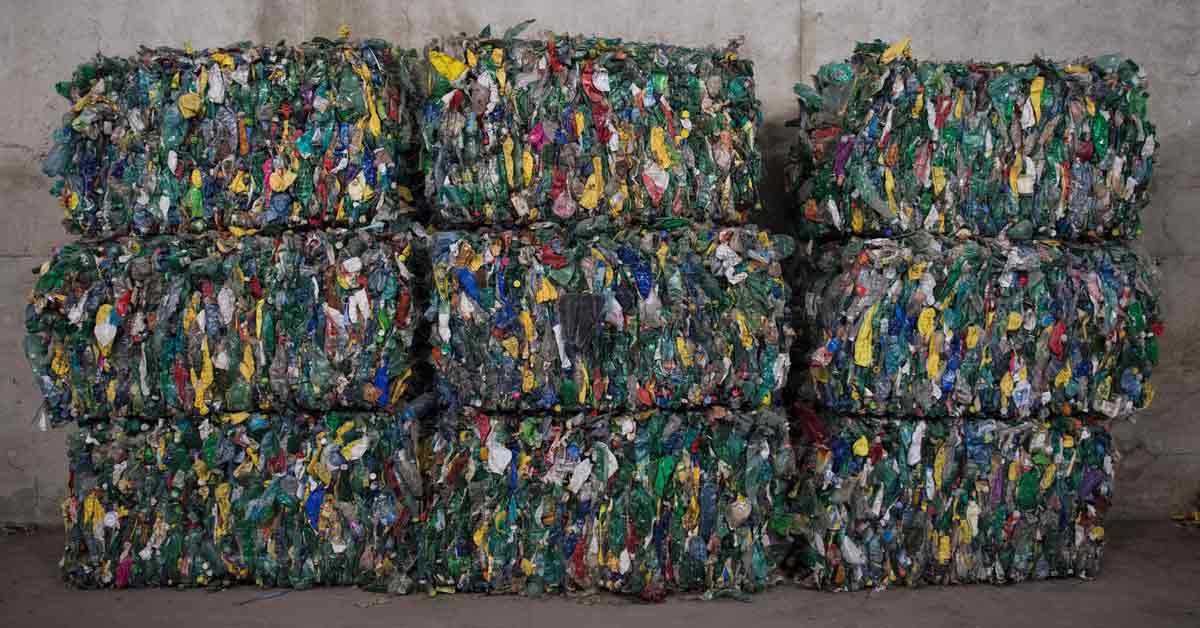With less than 10 percent of the plastic used across the world recycled, according to the Organisation for Economic Co-operation and Development (OECD), here are five things to know about recycling techniques and how they are evolving.
Mechanical Recycling
Sorting, shredding and heating are the three stages of mechanical recycling employed in 99 percent of operations worldwide, France's IFP Energies Nouvelles institute says.
After collection and sorting into polymer groups by optical equipment or flotation systems, the plastics are washed and crushed into granulated material. They are then melted down and can be re-used.
The technique does not remove additives, such as colouring, making recycled plastic packaging unsuitable for food. Bin bags are fine.
As a result, manufacturers prefer cheap new plastic over the recycled version that is of lower quality and more expensive. What's more, a large part of waste plastic from the developed world ends up being dumped abroad, NGOs say.
Today the processes are improving, particularly with PET or polyethylene terephthalate, the most common thermoplastic polymer resin. Poly-condensation allows for the recovery of degraded molecules and the removal of impurities under pressure and heat. Recycled plastic water bottles have recently made their appearance on supermarket shelves in Europe.
A Factory For Each And Every Plastic
Almost every molecule requires a particular type of factory with specialised equipment.
Out of the dozens of plastic polymers, polyethylene is the most common and is used to make shampoo bottles and plastic packaging for packs of water bottles, which are made of PET. Their tops are made of polypropylene, Marc Madec, a sustainable development specialist for France's Polyvia Federation of Plastics and Composites, told AFP.
Polyvinyl chloride or PVC is used in the construction industry for floor coverings and window frames. Polystyrene can be solid or foamed while polyamide is found in textiles and cars. Polyurethane can be rigid or flexible but is commonly found in mattresses or as insulation.
Such a range requires investment in high-quality sorting equipment to separate out the various plastics. Japan has been successful at this, the World Wide Fund for Nature (WWF) says, thereby limiting waste, but the country still incinerates more than it recycles.
Europe Still Needs To Do More
For the OECD, after taking into account losses during recycling, only nine percent of plastic waste was ultimately recycled globally.
Europe saw little more than a third of plastics collected recycled in 2020.
Germany, Sweden and Norway had the best performances at around 40 percent, while France had only 24 percent, the OECD report found.
The European Patent Office says Europe and the United States (US) account for 60 percent of worldwide patents for plastic recycling, with Asia trailing far behind.
Chemical Recycling For Better Or Worse?
Chemical recycling breaks down plastic, or depolymerises it into monomers which form basic units for polymers. It can also take the process further by returning plastic into naphtha, an oil derivative and a precursor for plastic.
"It's as if by adding a solvent to a cake you return to eggs, flour and butter," Madec explained.
"With the basic ingredients, you can re-make plastic as virgin plastic from oil."
The advantage is that it completes a full recycling for all the seemingly endless P molecules.
However, the investment costs are heavy and recycling has to be profitable or it will not be carried out.
The process also requires huge amounts of energy while doubts remain about the level of greenhouse gas emissions and toxic by-products, according to the Heinrich Boll Foundation, a pro-green public policy think tank and other specialists.
Organic Recycling
Back to naphtha is still in the early stages, but world leaders in chemistry have numerous projects lined up for the next 10 years, with hopes raised that dependence on oil can be reduced.
But first, there are also lots of chemical recycling schemes underway trying to answer cleaner-greener demand from environmentalists, the food industry and cosmetics world.
France seems to be trying to catch up, notably on Germany which with more than 160 recycling companies can boast nearly four times as many as its western neighbour.
Tyre giant Michelin is setting up a pyrolysis recycling plant for polystyrene and British chemicals group INEOS has announced a project at Wingles in northern France.
Exxon Mobil and TotalEnergies are also opening two recycling centres in France. Canada's Loop Industries and Eastman chemicals from the US have plans to open two factories in France to treat PET by 2025.
Organic recycling looks promising and relies on the use of enzymes.
French start-up Carbios has launched an industrial application of enzymes that render plastic waste compostable and on Thursday began building its first factory to organically recycle PET in eastern France, claiming a world first.
